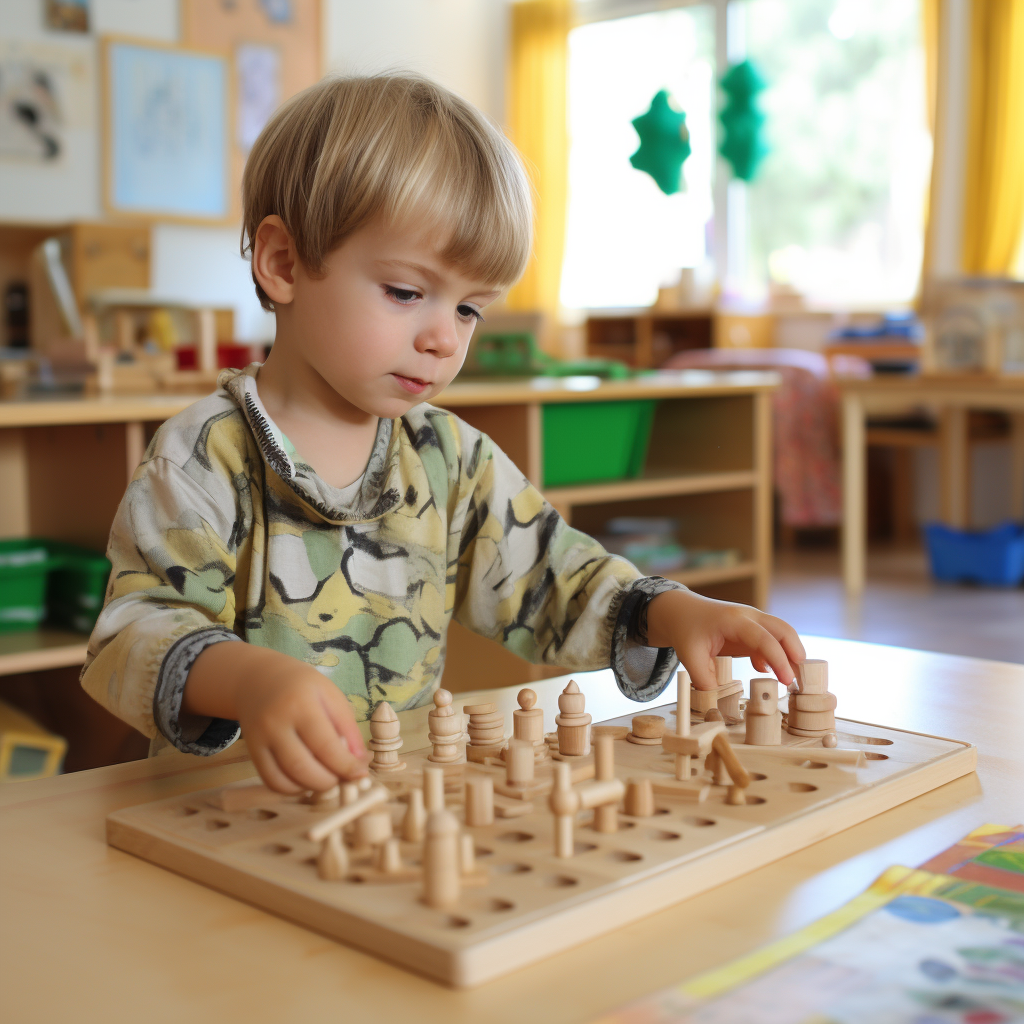As more families discover Montessori education, a common question arises around timing. What age proves ideal for children to enroll gaining maximal benefits from Montessori programming tailored to developmental stages? Should parents register infants? Wait until formal schooling years? Or embrace Montessori principles selectively in between based on evolving needs?
Since Maria Montessori created designated classroom environments for students spanning infancy through adolescence, parents rightfully feel overwhelmed navigating when and where to begin amidst such variety. Questions around authenticity, cost access and location availability further complicate matters influencing decisions.
Yet by closely examining the origins, research and outcomes from Montessori age groupings, families gain clarity what environments suit their child’s emerging needs across various planes of development, whether through formal schooling or Montessori-inspired activities integrated at home.
The first six years set an especially critical foundation as rapid brain development unfolds through hands-on sensory immersion. Neuroscience confirms young children construct cognitive capability best moving through enriching spaces mainlooping language, concepts and coordination intuitively without force feeding academics too early. Montessori principles develop the whole child across social, practical life, emotional intelligences beyond rote knowledge alone.
So while school enrollment generally focuses around ages three through five, Montessori wisdom enriches toddlers well before while philosophy benefits continue expanding even into high school and beyond based on environment alignment nurturing natural human grow.
Montessori Methodology Mirrors Human Growth Periods
Maria Montessori extensively researched child development identifying universal planes of growth all children experience gaining mastery. These human tendencies inform her education model aligning environment and activities harnessing windows of prime receptivity across childhood:
Birth to Age 6
Absorbent Mind Characteristics: Unconscious acquisition, sensitive periods for order and sensory input Hands-on materials match mental capabilities, modeling from surroundings
Ages 6 to 12
Reasoning Mind Characteristics: Concrete operational thought Intellectual independence emerges, operates based on self-developed rules, ability for abstraction matures
Ages 12 to 18
Abstract Imagination Characteristics: Uses knowledge creatively seeks social contribution opportunities, develops strong peer orientation, seeks relevance and purpose
Ages 18 to 24
Holistic Vision Characteristics: Mission oriented toward vocation and work, strong impulse to contribute value to humanity, seeks further knowledge specialization
Given such patterns, Dr. Montessori demonstrated children thrive through activities aligned with developmental instincts active at given times, not assuming one curriculum fits every age and stage uniformly. Sensitive window receptivity optimizes outcomes when environments follow the child.
Infancy: Cultivating Foundations for Lifelong Learning
From birth to age three, infants establish critical foundations for lifelong learning via brain connectivity exponentially increased when exposed to enriching hands on environments aiding sensory and motor skill coordination through:
Language – Speaking gently conveys security plus exposes vocabulary acquisition and listening interpretation unconscious yet actively retained and correlated.
Visual Tracking – Hanging stimulation cards with bold patterns vertically develops strengthening eye muscle control key for reading left to right eye motion concentration.
Gross Motor – Unrestricted floor play plus supported sitting balance without restrictive baby devices builds core and confidence exploring independently.
Order – Display consistent daily care patterns through song rituals conveying reliable nurture and temporal awareness
Such Montessori inspired infant activities prove essential ensuring secure attachment and exploratory growth remains anchored over initial 36 months as children prepare conquering coming plane mobility milestones confidently. Nurturing development using simple modifications yields peacefully capable kids awaiting independence.
Montessori Toddler Learning Landscapes
As infants blossom into curious, nimble toddlers directing surroundings through discovered mobility around 12 months old, Montessori environments continue providing enriched sensory activities now with expanded introduction:
Practical Life – Sweeping, wiping, transferring exercises build visual spatial processing, executive sequencing and purposeful movement.
Coordination – Grasping, building, buttoning supports fine motor advancement needed for self feeding through dressing and toileting attempts toddlersbeams gaining.
Independence – Displaying 3-4 toy choices on low shelves rotates novel stimulation within attention span capabilities helping toddlers self-select through trial and error building personal preferences
Language Exposure – Modeling new vocabulary through observational commentary during care routines expands word-meaning connections accelerating language production adapting from immersive absorption now employing intentional naming participation.
Whether at toddler community centers or household environments deliberately showcasing such opportunities appropriate challenging young children to build lifelong capability and character virtues through practical aspects while protecting overstimulation.
Montessori Preschools Uphold Sensitive Window Receptivity
The 2 1/2 to 6 year crescent marks incredible brain growth with nimble neural wiring primed absorbing new information rapidly up to age 5 when synaptic pruning refines retained skills into disciplined capability accelerating so quickly again around 8 years old. Such windows beg rich nurturing.
Thus Montessori early childhood models prominently feature:
Enrichment Sensitivity – Classrooms brim beautiful math manipulatives, botany specimens, language symbols and global cultural wares inviting exploration specific developmental acquisition periods.
Peer Collaboration – Multi age groupings like 2 1/2-4 or 4-6 year spans allow advanced mentoring, rotating lessons and fluid play creativity surpassing rigid age segregation.
Practical Life – Activities like food preparation, laundry folding and material restoration teach real world executive function. These exercises form foundations launching reading and mathematics mastery exponentially as concentration skills compound
Such preschool immersion through rare absorption-optimized years leaves children supremely poised entering traditional primary grades. Montessori kids consistently demonstrate advanced social cognition and academic performance surpassing conventionally schooled peers thanks to these early developmental cultivation advantages honoring sensitive receptivity.
Primary Grades Sustain Whole Child Learning Velocity
Where most education models transition heavy structured top-down academics entering grade school levels, Montessori environments continue upholding whole child development looks beyond labelling knowledge gaps but still awakens incredible potential too often dismissed as deficits when square peg curricula alienate rounder minds requiring paradigm shifts embracing neurodivergence.
Thus primary communities still:
Integrate Movement Wisdom gained physically sticks better long term. Young minds learn intuitively through hands, breath and bodies fully alive. Desks confine while floor freedom liberates synapses to spark freely through laughter, conversation and exploration.
Spotlight Projects Seeing complex concepts manifest through creativity surpasses lectured abstractions alone. Montessori models spotlight children sharing passion project works across botany, geometry or grammar understanding never forcing standardization conformity.
Sustain Mixed Ages
Continuing multi year blends like lower el 1-3 grades sustains advanced modeling benefits nurturing leadership and meaningful purpose. Kids serve as inspiration to younger peers intrinsically not incentivized externally alone.
Whether incorporated at home, through magnet models or formal academies, sustaining Montessori methods aligning environment and instruction to follow children’s intellectual ripening not impose rigid curricular will proves powerfully purposeful reaping character development beyond achievement measures quantified. Wisdom awakens many ways when nurtured creatively.
Adolescent Montessori Models Meet Developmental Needs
The middle school decade proves notoriously turbulent for youth orienting identity against complex social stressors, puberty changes and alarming mental health declines as psychology fields urging education policies address crisis issues around belonging, purpose discovery plus skill building better matching labor force credentials beyond classroom walls.
Pioneering Montessori middle and high schools continue upholding adolescent sensitivity through:
Passion Project Immersion Open-ended Quest like project portfolios feature integrated application translating student creativity into community betterment like designing parks, elevating literacy or launching microbusinesses周real civic impact.
Peace Education Core humanities coursework builds cultural intelligence equipping students navigating diversity beyond tolerance into empathy essential thriving pluralistic environments today and tomorrow.
Social Emotional Learning
With adolescence such turbulent terrain emotionally, specialized middle school trained teachers offer tailored guidance through anxiety, relationships plus change resilience skill building essential life management tools too often overlooked by academics alone.
The Association of Montessori International Secondary Schools now accreditsover 150 US high school implementing Montessori methodology purposefully designed addressing social, cognitive and industry changes marking 21st century flux. Student outcomes reveal strong critical thinking, motivated study habits and prosocial instincts consistently—all upskilling attributes higher education and workplaces now prioritize hiring graduating classes seamlessly career launching.
Selective Montessori Wisdom Enrichment Any Age, Anywhere
Perhaps most significantly, families need not enroll formal Montessori schools or even duplicate classrooms comprehensively to benefit introducing aspects elevating child development through intentional environmental engineering, sensory immersion activities plus observational guidance upholding independence tailored age/stage growth manifestations.
In infancy, display visually stimulating fabric art rotating monthly.
For toddlers, uphold consistent household order and expect participated responsibility through cleaning tasks mastered thanks to little brooms, play dishware supporting cups to mouths themselves!
During preschool prime receptivity, showcase nature items identified, classified and rotated within simple nature display shelves sparking science intrigue.
For early elementary children, set expectation self-regulate television viewing through egg timer limits alongside displayed book choices reinforcing literacy agency.
For middle schoolers , displays visually organizes project planning reducing distraction establishing focus patterns essential managing multiplying workflow demands.
Such deceptively small daily environment upgrades genuinely enrich child capability beyond formal locations alone when families embrace Montessori principles adapting home cultures. Observe children, then set the stage allowing natural development shine brightly!

